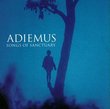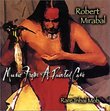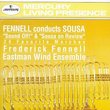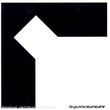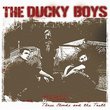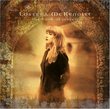| All Artists: Gaspare Spontini, Leyla Gencer, Renato Bruson, Robleto Merolla, Enrico Campi, Agostino Ferrin, Franca Mattiucci, Sergio Sisti Title: Spontini: La Vestale / Previtali (1969) Members Wishing: 0 Total Copies: 0 Label: Living Stage Original Release Date: 1/1/1969 Re-Release Date: 10/29/2002 Genre: Classical Style: Opera & Classical Vocal Number of Discs: 2 SwapaCD Credits: 2 UPCs: 675754545826, 3830025741872 |
Search - Gaspare Spontini, Leyla Gencer, Renato Bruson :: Spontini: La Vestale / Previtali (1969)
 | Gaspare Spontini, Leyla Gencer, Renato Bruson Spontini: La Vestale / Previtali (1969) Genre: Classical |
CD DetailsSimilarly Requested CDs
|
CD ReviewsOutstanding recording of a neglected masterwork! madamemusico | Cincinnati, Ohio USA | 11/23/2002 (4 out of 5 stars) "After a journeyman career in Italy, during which he wrote more than a dozen treacly, undistinguished scores, Spontini's "La Vestale" (1807) came like a thunderbolt of great musical drama and tragic utterance. Written with the encouragement of the Empress Josephine, its premiere at the Paris Opera established Spontini as one of the greatest Italian composers of his age. Such diverse listeners as Cherubini, Meyerbeer, Berlioz and Wagner considered it a major masterpiece and drew inspiration from its pages. Unfortunately, Gioacchino Rossini came to Paris in the late 1810s, and both he and his bel canto brethren (Bellini and Donizetti) swept all before them. Spontini's later, equally excellent opera "Olympie" (1819) met with indifference, leading him to leave Paris for Germany, where he became Chief Music Director of Prussia before returning to France again in 1841.As part of the "bel canto coup" of the Paris Opera, Bellini's "Norma" (1831)--which boasts a similar plot--swept the memory of "Vestale" away with its "prettier," more memorable arias and duets; and Norma, as Bellini's most cogently dramatic score, is certainly a masterpiece in its own right. Yet that does not detract one iota from Vestale's Gluck-like power and drama. Unfortunately, when it was revived at the Metropolitan in 1925 for the great soprano Rosa Ponselle, it was followed two years later by her "Norma," thus giving the impression that, somehow, Spontini's masterwork was somehow less worthy, a mere "warm-up" for Bellini. Nothing could be further from the truth. Listening, for instance, to the way Spontini develops his music organically, developing aria into duet into trio like Mozart, or following a plangent aria like "Tu che invoco" with a developed, dramatic cabaletta far different from the merely decorative ones of Bellini or even early Verdi, one realizes that this was a great artist, one who, like middle-to-late-period Verdi, was capable of writing music that strips away all artificiality and grabs one with its depth of feeling.Unfortunately, "Vestale" has not fared well on records. Ponselle recorded the two great Act II arias in 1926, and they are an eloquent testament to the work and commitment that she and conductor Tullio Serafin (who led the Met performances) put into it. There was a tepid, underdone recording on the Orfeo label in the 1980s, then a more powerful one on Sony, well-conducted by Riccardo Muti but featuring a cast of vocal non-entities.The present performance, taped in Palermo in 1969, has some flaws. The recorded sound is somewhat thin. The Palermo strings sound a bit scrappy, not really lush or powerful, though the horns and winds are outstanding. And it omits the ballet music at the end of Act I which, though formula, is well-written and worth hearing. But there are several great positives to offset this. First and foremost, it is well-conducted by Fernando Previtali, bringing across the music's depth and nobility despite the orchestral flaws. And secondly, the singers are superb-not only Gencer and Bruson, the known names, but also the little-known tenor Robleto Merolla, mezzo Franca Mattiucci and bass Agostino Ferrin.Comparing this with the legendary but infamous recording with Callas, Stignani, Corelli and Rossi-Lemeni, in which the orchestra was well-recorded but the voices sound uniformly compressed, harsh and shrill, one notices a few interesting things. One is that Callas sings her coloratura in the Act I scene "Oh di funesta possa" more cleanly and powerfully than Gencer, but omits a soft, high-lying phrase that Gencer sings. Another is that, at the end of "Tu che invoco," Callas adds a spurious cadenza capped by a thrilling high C--nice to hear, but totally out of place in Spontin's music. Callas was in great voice for this "Vestale," but apparently had some problems singing softly: she sings the high phrases in both "Tu che invoco" and "O nume tutelar" too loudly, thus spoiling Spontini's desired effect of having Giulia sound introspective at those moments. One wonders if Callas ever sang ANYTHING as written, even when she was in great voice as she was here. Gencer, on the other hand, is simply superb, musically and dramatically, though in the beginning her voice displays wiriness on top and an unsteady "beat" in the voice that soon clears up. In short, then, this is the performance to get if you want to hear and understand the greatness of "Vestale," but if you can tolerate the pinched, weird sonics (and occasional quirks) of the Callas performance, you should get that one, too."
|

